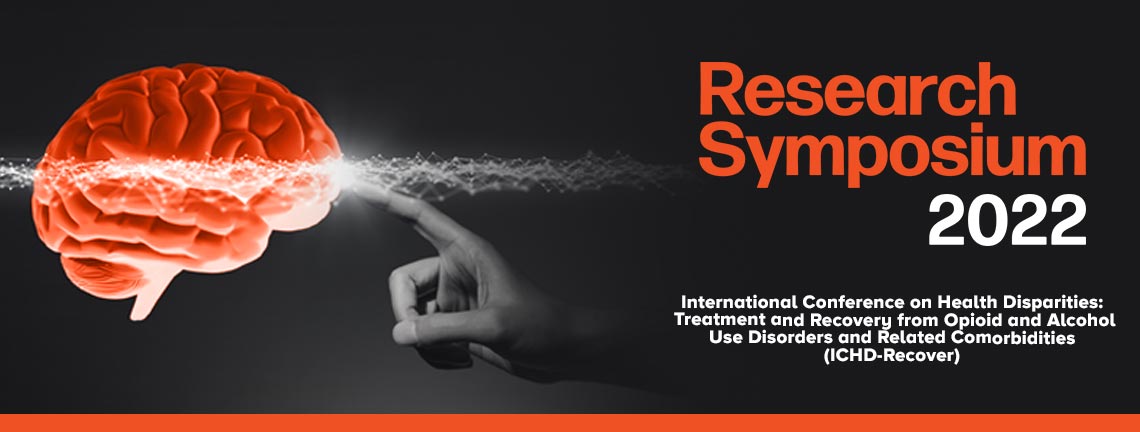
Posters
Presentation Type
Poster
Discipline Track
Translational Science
Abstract Type
Research/Clinical
Abstract
Objective/Hypothesis: Bipolar disorder (BD) has the highest association with alcohol and other substance use disorders compared to other major psychiatric disorders. This patient population is particularly challenging to treat. We have previously shown that some patients with co-occurring alcohol use and bipolar disorders respond to the GABAergic agonist valproate (VPA), which is known to modulates the dopaminergic system, and also as an epigenetic modifier. Predictors of therapeutic response to VPA in patients with AUD/BD are not known, and the subgroup which would benefit from VPA is still to be identified. Recent evidence suggests that AUD promotes a pro-inflammatory state while VPA increases levels of anti-inflammatory factors. We hypothesized that VPA has an anti-inflammatory effect and that patients with AUD/BD who respond to VPA have higher baseline inflammatory indices.
Methods: Nine patients with DSM-IV-defined diagnoses of AUD and BD (AUD/BD) were enrolled in the study. Patients received a course of VPA for 3 months at an average dose of 1000 mg a day in addition to receiving either naltrexone of 50 mg daily or placebo. Blood was collected prior to the initiation of VPA and throughout the treatment study. Liver function tests and trough VPA serum concentrations were evaluated periodically. Alcohol use outcome was assessed using the Timeline Follow-Back for Recent Drinking. The use of other drugs was monitored through regular urine drug screen. The primary alcohol use outcome was changes in proportion of weekly heavy drinking days (defined as ³ 5 drinks per day for men and ³ 4 drinks per day for women). Plasma levels of cytokines were measured using Multiplex Immunoassay, in accordance to the manufacturers’ recommendations.
Results: We found that about one half of enrolled patients responded to VPA. Screening of pro- and anti-inflammatory cytokines showed that responders had higher levels of the chemokine SDF-1a/CXCL12a and the pro-inflammatory marker C-reactive protein (CRP) and lower levels of anti-inflammatory factor matrix metalloproteinase-10 (MMP-10) (p < 0.05). Screening of cytokines in samples before and after treatment with VPA showed that VPA increased levels of anti-inflammatory factors interleukin-10 (IL-10) and MMP-10 (p < 0.05) and tended to decrease levels of pro-inflammatory CRP (p > 0.05).
Discussion: Pro- and anti-inflammatory biomarkers may serve as predictors of treatment response to VPA in patients with combined AUD/BD. Our preliminary results also suggest that therapeutic effect of VPA may be in part due to anti-inflammatory action of VPA. Larger studies may be indicated to validate these findings.
Recommended Citation
Blokhin, Ilya; Harlow, Lisa; Beurel, Eleonore; Miao, Feng; Ascherman, Dana; Wahlestedt, Claes; and Salloum, Ihsan, "Pro- and Anti-inflammatory Biomarkers as Predictors of Response to Valproate in Patients with Comorbid Alcohol Use and Bipolar Disorder-Preliminary Findings" (2023). Research Symposium. 33.
https://scholarworks.utrgv.edu/somrs/2022/posters/33
Included in
Behavioral Medicine Commons, Neurosciences Commons, Psychiatry Commons, Substance Abuse and Addiction Commons
Pro- and Anti-inflammatory Biomarkers as Predictors of Response to Valproate in Patients with Comorbid Alcohol Use and Bipolar Disorder-Preliminary Findings
Objective/Hypothesis: Bipolar disorder (BD) has the highest association with alcohol and other substance use disorders compared to other major psychiatric disorders. This patient population is particularly challenging to treat. We have previously shown that some patients with co-occurring alcohol use and bipolar disorders respond to the GABAergic agonist valproate (VPA), which is known to modulates the dopaminergic system, and also as an epigenetic modifier. Predictors of therapeutic response to VPA in patients with AUD/BD are not known, and the subgroup which would benefit from VPA is still to be identified. Recent evidence suggests that AUD promotes a pro-inflammatory state while VPA increases levels of anti-inflammatory factors. We hypothesized that VPA has an anti-inflammatory effect and that patients with AUD/BD who respond to VPA have higher baseline inflammatory indices.
Methods: Nine patients with DSM-IV-defined diagnoses of AUD and BD (AUD/BD) were enrolled in the study. Patients received a course of VPA for 3 months at an average dose of 1000 mg a day in addition to receiving either naltrexone of 50 mg daily or placebo. Blood was collected prior to the initiation of VPA and throughout the treatment study. Liver function tests and trough VPA serum concentrations were evaluated periodically. Alcohol use outcome was assessed using the Timeline Follow-Back for Recent Drinking. The use of other drugs was monitored through regular urine drug screen. The primary alcohol use outcome was changes in proportion of weekly heavy drinking days (defined as ³ 5 drinks per day for men and ³ 4 drinks per day for women). Plasma levels of cytokines were measured using Multiplex Immunoassay, in accordance to the manufacturers’ recommendations.
Results: We found that about one half of enrolled patients responded to VPA. Screening of pro- and anti-inflammatory cytokines showed that responders had higher levels of the chemokine SDF-1a/CXCL12a and the pro-inflammatory marker C-reactive protein (CRP) and lower levels of anti-inflammatory factor matrix metalloproteinase-10 (MMP-10) (p < 0.05). Screening of cytokines in samples before and after treatment with VPA showed that VPA increased levels of anti-inflammatory factors interleukin-10 (IL-10) and MMP-10 (p < 0.05) and tended to decrease levels of pro-inflammatory CRP (p > 0.05).
Discussion: Pro- and anti-inflammatory biomarkers may serve as predictors of treatment response to VPA in patients with combined AUD/BD. Our preliminary results also suggest that therapeutic effect of VPA may be in part due to anti-inflammatory action of VPA. Larger studies may be indicated to validate these findings.

